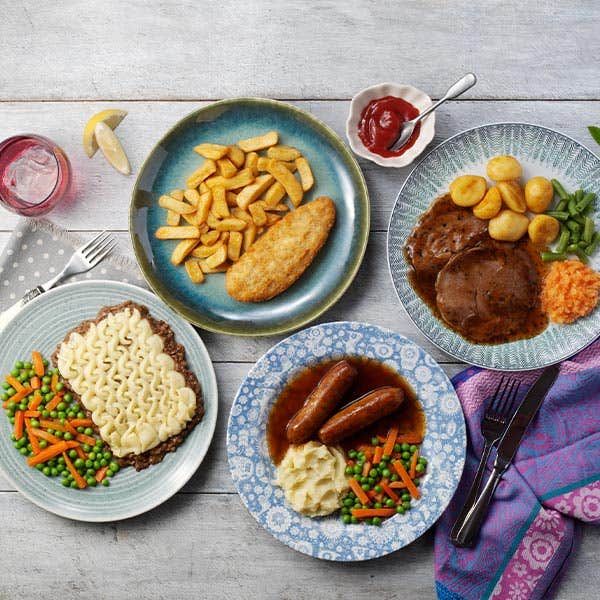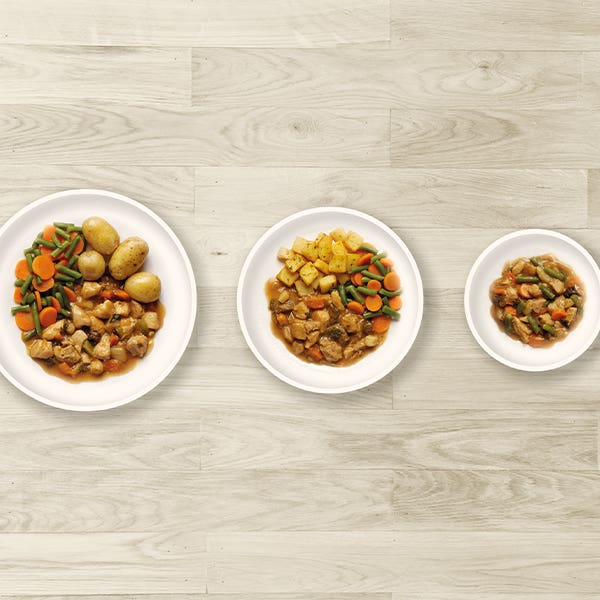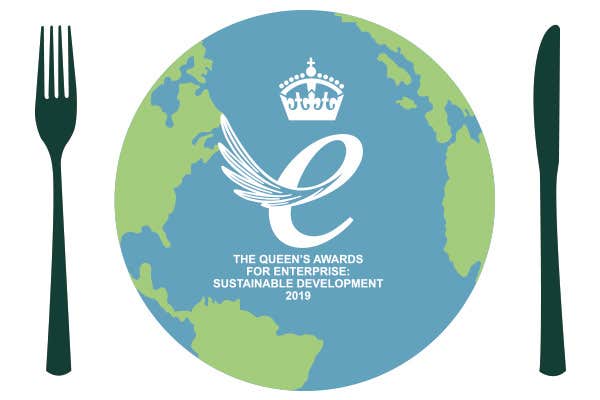
HOW TO REDUCE FOOD WASTE
HOW TO REDUCE FOOD WASTE
Added 1220 days ago. 22 December 2020
Did you know? 4.5m tonnes of food is wasted in the UK, each year. Here is a handy guide, full of facts and advice on reducing food waste in your home.
To help reduce food waste, we have put together this handy guide which includes advice and tips on taking steps to reduce food waste in your home and beyond.
Why Help To Reduce Food Waste?
You may think food waste doesn’t affect you, but this is not true. In fact, it can affect us and future generations to come.
Food waste contributes to wider problems affecting our planet, such as climate change. Food that is thrown away from your home, travels to landfill where it is left to rot. This produces the second most common greenhouse gas, methane contributing to climate change.

We also have to consider, whilst food is the physical waste there are also economic and environmental losses involved too. When food is wasted, we waste the time, labour and resources that have gone into producing it.
Where Is Food Wasted?
Food can be wasted in our homes and beyond, through each stage of its journey from farm to your home. In fact, around 14% of food globally is lost before it even reaches retailers [2]. Here are a few instances where food can be wasted;
Meeting Industry Standards
Up to 20-40% of fruit and vegetables are said to be discarded at farms because they do not meet industry standards [3]. They could be irregularly shaped or discoloured. However, this does not mean they are not safe for consumption.
Transportation
Once transported, food can become spoiled. If packed too tightly, fruit and vegetables may become bruised or if perishable goods, such as poultry, isn’t temperature controlled it may become unsafe to eat.
Use-by Dates
One of the biggest offenders for food waste are use-by dates. Retailers have a duty of care to their customers and therefore have to restock items that may have surpassed its shelf life. In addition, at home many of us may bin foods based on their use-by or best before date shown on the packet, but this does not make them inedible.
Cooked Food
Furthermore, cooking for more people than we need or taking larger portions than we can physically eat can both result in food being disposed of if not eaten. Our Mini Meals range is a great way to combat this, offering a variety of smaller sized dishes that are perfect for when you fancy a smaller portion.

What Can You Do To Reduce Food Waste?
All of the issues above can cause a progressive strain on the environment we live in. Here, we have rounded up a few sure steps we can all take to help tackle food waste.
Make a shopping list
Frequently checking your cupboards and making a list of what you need helps prevent impulse buying and also ensure you only buy what you need when you go shopping. Upon shopping always check the best before and use-by dates.
Store Food Efficiently
Ensure appliances such as your fridge are set to the correct temperature and move older produce to the front and new to the back. Also keep leftovers or packets sealed in airtight containers or sealed bags. This will keep it fresher for longer.
Freeze produce
If you have produce such as fruit or vegetable that you won’t eat in time, freezing them can be a great way of preserving them for soups, smoothies or stews at a later date. Many leftovers and chilled meals will also freeze quite well too. We happen to know thing or two about frozen food. Here’s some of benefits of frozen ready meals.
Measure Your Portions
Cook only the amount you need, unless you are intending to save some leftovers. You don’t want to be left with food that will inevitably end up in the bin.
Repurpose Your Food
Instead of throwing stuff in the bin, you could compost them – feed nutrients back into the soil and help reduce your carbon footprint. In addition, blending the stalks of vegetables into smoothies can reduce food waste and benefit your diet.
How We're Addressing Food Waste
Here at Wiltshire Farm Foods, ethical values are engrained as part of our culture. We are always reviewing ways in which we can become more sustainable throughout our supply chain.
We are not only proud partners of the Ethical Trading Initiative, but we have also won a Queen’s Award - the most prestigious of business accolades - for our commitment towards having a positive impact on our environment, society and economy.

- We are proud supporters of British Food & Farming industries.
- We are founding members of the UK Plastics Pact, an initiative focused on tackling the plastic challenge and keep our packaging to a minimum.
- Our delivery drivers plan their own delivery routes to ensure they are efficient, reducing delivery distances and their carbon footprint.
- Within our ready meal range, we offer multiple meal sizes to help manage different portion sizes.
You can find out more about our sustainable values here.
There are endless ways you can reduce food waste and also save yourself money at the same time.
Come and join us on our journey to reduce food waste. Together, we are able to alleviate the pressure on Mother Nature and help bring a stronger, more positive impact to our environment we call home.
If you have any other ideas that are not listed above, feel free to share on our social channels, we’d love to hear from you! Together, let’s help tackle food waste.

